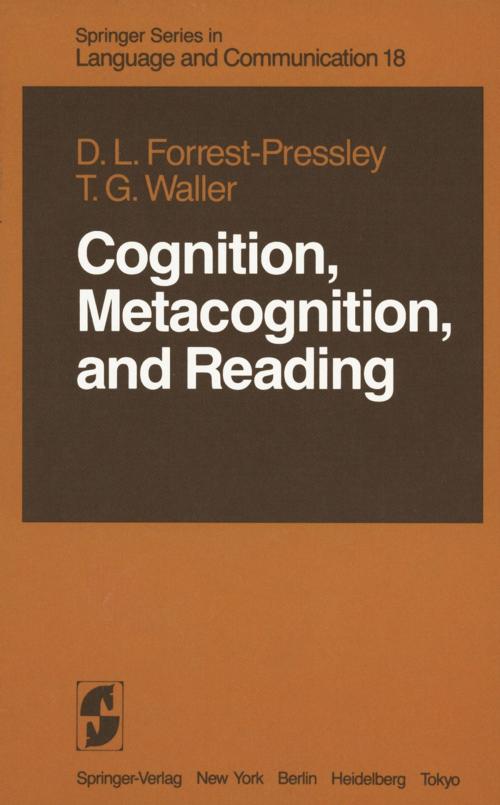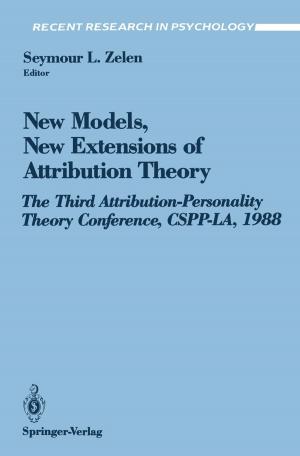Cognition, Metacognition, and Reading
Nonfiction, Science & Nature, Science, Physics, Waves & Wave Mechanics, Acoustics & Sound| Author: | Donna-Lynn Forrest-Pressley, T. Gary Waller | ISBN: | 9781461252528 |
| Publisher: | Springer New York | Publication: | March 12, 2013 |
| Imprint: | Springer | Language: | English |
| Author: | Donna-Lynn Forrest-Pressley, T. Gary Waller |
| ISBN: | 9781461252528 |
| Publisher: | Springer New York |
| Publication: | March 12, 2013 |
| Imprint: | Springer |
| Language: | English |
We had our first conversation about cognition, metacognition, and reading in September of 1976. Our particular concern was with reading and learning to read, and what, if anything, meta cognition might have to do with it all. We didn't really know much about metacognition then, of course, but then most other people were in the same predicament. Some people had been working with interesting approaches and results on metalanguage and reading, among them J. Downing, L. Ehri, L. Gleitman, 1. Mattingly, and E. Ryan, and it also was about that time that people were becoming aware of E. Markman's first studies of comprehension monitoring. Other than that perhaps the most influential item around was the perhaps already "classic" monograph by Kruetzer, Leonard, and Flavell on what children know about their own memory. Also in the air at that time were things like A. Brown's notions about "knowing, knowing about know ing, and knowing how to know," D. Meichenbaum's ideas about cognitive behavior modification, and the work by A. Brown and S. Smiley on the awareness of important units in text. Even though these developments were cited as new and innovative, it was not the case that psychologists had never before been of questions. They certainly interested in, or concerned with metacognitive sorts had, as clearly evidenced by the notion of "metaplans", in Miller, Galanter, and Pribram's Plans and the Structure of Behavior.
We had our first conversation about cognition, metacognition, and reading in September of 1976. Our particular concern was with reading and learning to read, and what, if anything, meta cognition might have to do with it all. We didn't really know much about metacognition then, of course, but then most other people were in the same predicament. Some people had been working with interesting approaches and results on metalanguage and reading, among them J. Downing, L. Ehri, L. Gleitman, 1. Mattingly, and E. Ryan, and it also was about that time that people were becoming aware of E. Markman's first studies of comprehension monitoring. Other than that perhaps the most influential item around was the perhaps already "classic" monograph by Kruetzer, Leonard, and Flavell on what children know about their own memory. Also in the air at that time were things like A. Brown's notions about "knowing, knowing about know ing, and knowing how to know," D. Meichenbaum's ideas about cognitive behavior modification, and the work by A. Brown and S. Smiley on the awareness of important units in text. Even though these developments were cited as new and innovative, it was not the case that psychologists had never before been of questions. They certainly interested in, or concerned with metacognitive sorts had, as clearly evidenced by the notion of "metaplans", in Miller, Galanter, and Pribram's Plans and the Structure of Behavior.















